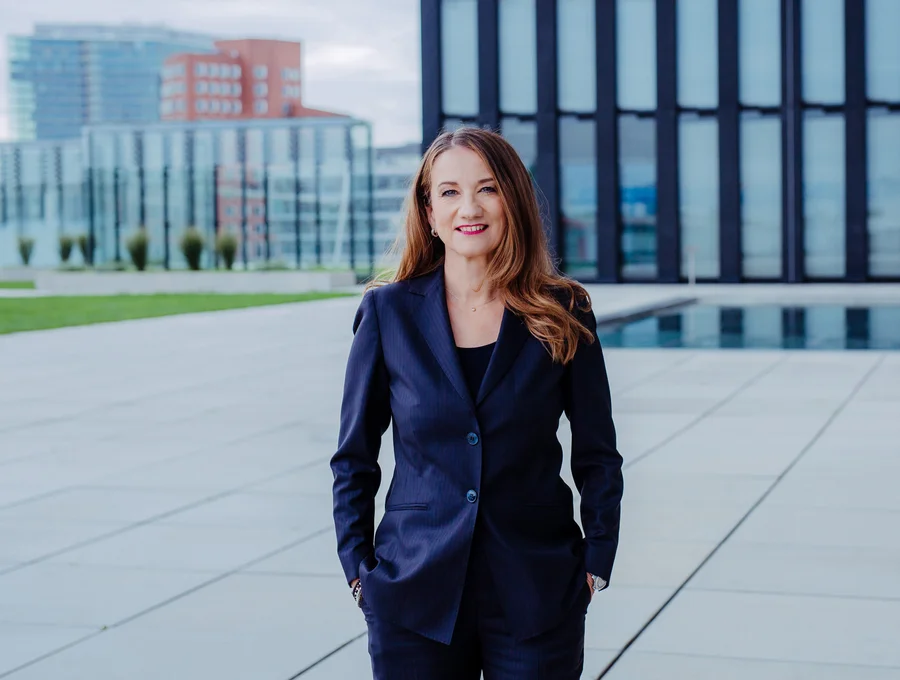
Barbara Frei, EVP at Schneider Electric
Barbara Frei, EVP of Schneider Electric, shares insights into how digitalisation in heavy industries can advance sustainability while optimizing processes.
A Snapshot of Schneider Electric
Schneider Electric is a global leader in energy management and industrial automation, generating €36 billion annually and employing 150,000 people. The company operates across North America, Europe, and Asia, with India emerging as its third-largest market. Schneider’s key clients include Danone, Shell, Henkel, and Nexans, demonstrating its impact across diverse industries.
Barbara Frei’s Vision: Energy Efficiency and Sustainability
Barbara Frei’s career in mechanical and electrical engineering spans decades, but her mission has remained constant: driving energy efficiency to achieve sustainability. She highlights that while 45% of CO2 emissions stem from energy supply, 55% arise from energy usage. This underscores the need for optimized consumption through innovative solutions.
Frei emphasizes that energy efficiency isn’t just about cost-saving—it enhances productivity and resilience, making it a cornerstone of sustainable operations.

schneider-electric
Industrial Automation: The Backbone of Modern Efficiency
Industrial automation transforms manual processes into optimized, digital workflows. Schneider Electric, a pioneer in this field since 1969, has continually advanced automation solutions for discrete, hybrid, and process industries.
Frei explains that automation is not about replacing workers but augmenting the workforce. With global labor shortages in areas like quality inspection, digital tools enhance productivity while creating a safer and more efficient workplace.
Sharing Sustainability Expertise with Customers
Schneider Electric embeds sustainability into every facet of its operations. Through its Industrial Digital Transformation Services, the company guides mid-sized businesses on their journey toward digitalisation and efficiency.
The company also offers electrification consulting, helping industries transition from fossil fuels to cleaner energy. Its sustainability practice supports businesses in crafting actionable roadmaps to achieve net-zero targets.

Robots are one facet of industrial automation
Balancing Profitability and Sustainability
Barbara Frei argues that sustainability and profitability go hand in hand. She points to India’s shift from low-cost labor to a highly skilled workforce as proof that sustainable investments yield long-term profits.
Frei advises companies to avoid reliance on volatile energy prices and instead invest in energy-efficient projects. Businesses that adopt sustainable practices early often gain a competitive edge during energy crises.
The Emerging Industrial Identity
Schneider Electric envisions a new identity for industry—one that appeals to younger generations. Frei highlights how digital tools like virtual reality and simulators make manufacturing more accessible and attractive to young talent.
This approach not only addresses labor shortages but also fosters a tech-savvy workforce ready to drive innovation in industrial processes.
Advice for Women in Engineering
For women aspiring to leadership roles, Frei stresses the importance of technical expertise as a foundation. “Your technical foundation gives you the license to lead,” she says. Over time, honing leadership and soft skills becomes essential for success at the executive level.
CEOs: Lead the Digitalisation and Sustainability Charge
Frei advises CEOs to personally spearhead digitalisation and sustainability initiatives. Success hinges on collaboration across departments and effective change management. Leaders must make these transformations a personal mission to drive impactful, long-term results
 MeloAuto-Trusted PLC & DCS Parts Supplier
MeloAuto-Trusted PLC & DCS Parts Supplier 
WeChat
Scan the QR Code with wechat